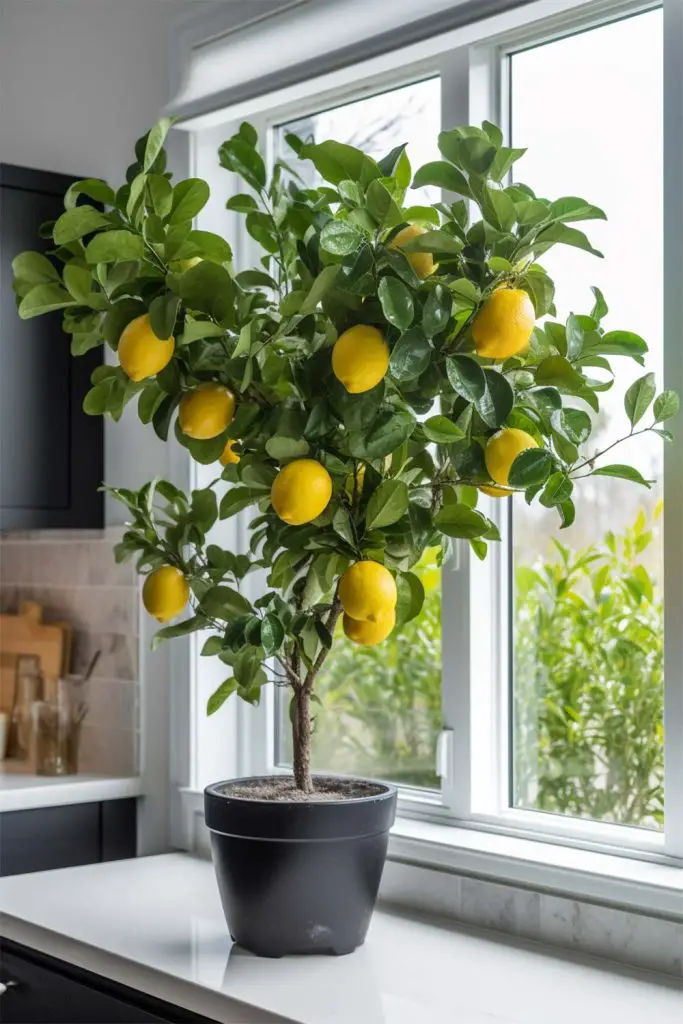How To Grow Your Own Indoor Lemon Tree!

Indoor gardening offers a world of possibilities, even if you lack a spacious backyard. One such exciting endeavor is growing your own indoor lemon tree. Not only do lemon trees provide a fresh and tangy flavor to various dishes and beverages, but they also emit a refreshing aroma.
In this comprehensive guide, we will walk you through the step-by-step process of successfully cultivating an indoor lemon tree, from selecting the right variety to nurturing it to maturity.
Choosing the Right Variety
When it comes to indoor lemon tree cultivation, it’s crucial to select the right variety that suits your specific needs and growing conditions. Dwarf lemon tree varieties are ideal for indoor cultivation due to their compact size and adaptability. Popular dwarf lemon tree cultivars include the ‘Improved Meyer,’ ‘Ponderosa,’ and ‘Lisbon’ varieties.
Acquiring Lemon Tree Seeds or Saplings
There are two main methods of acquiring lemon tree saplings: purchasing them from a nursery or starting from seeds. If you opt for seeds, choose fresh, organic, and viable ones. However, note that growing from seeds requires more time and patience compared to using saplings. Purchase saplings from reputable sources, ensuring they are disease-free and healthy.
Creating the Optimal Growing Environment
Lemon trees thrive in specific environmental conditions. Here are some essential factors to consider:
A. Lighting: Lemon trees require 10-12 hours of direct sunlight daily. Place your tree near a south-facing window or use grow lights if natural light is limited.
B. Temperature: Maintain a temperature range between 60-70°F (15-21°C). Avoid exposing your tree to extreme temperature fluctuations.
C. Humidity: Lemon trees prefer moderate to high humidity levels. Consider using a humidifier or placing a tray filled with water near the tree to increase humidity.
D. Potting Mix: Use a well-draining potting mix with a pH level between 5.5 and 6.5. Incorporate organic matter and perlite for optimal drainage.
Planting and Pot Selection
Choose a pot that is at least 10-12 inches deep with adequate drainage holes. Fill the pot with the potting mix, leaving about an inch of space at the top. Gently remove the sapling from its container and place it in the center of the pot.
Ensure that the crown of the tree is level with the potting mix surface. Add more mix around the root ball and lightly press it down to secure the sapling.
Watering and Fertilizing
Proper watering and fertilization are crucial for healthy growth. Water your lemon tree when the top inch of soil feels dry to the touch. Avoid overwatering, as it can lead to root rot. During the growing season, fertilize your lemon tree every 4-6 weeks with a balanced citrus fertilizer.
Follow the manufacturer’s instructions for dosage.
Pruning and Training
Regular pruning helps shape your indoor lemon tree, stimulates growth, and maintains a manageable size. Remove dead or damaged branches, as well as those crossing or rubbing against each other. Prune during the dormant period to minimize stress on the tree.
Train your lemon tree by gently bending flexible branches to encourage horizontal growth.
Pests and Diseases
Common pests that may affect indoor lemon trees include aphids, scale insects, and spider mites. Inspect your tree regularly and take prompt action at the first sign of infestation. Use organic pest control methods, such as neem oil or insecticidal soap, to protect your lemon tree.
Additionally, maintain good airflow and avoid overcrowding to prevent fungal diseases.
Harvesting and Enjoying Your Lemons
As your lemon tree matures, it will start bearing fruit. Harvest the lemons when they have reached full size and developed a bright yellow color. Twist the fruit gently or use pruning shears to cut the stems. Freshly harvested lemons can be used in a variety of culinary delights, from refreshing lemonade to zesty marinades.

More interesting articles you may be interested in reading:

How To Remove A Tree Stump Painlessly
You Can Get Candy Cane Flowers That Will Get You In The Mood For The Holidays
Fluffy Miniature Cows Are SO CUTE and They Make GREAT PETS.
Thanks for reading and be sure to share this info with your friends using the social share buttons below.
Talking about social stuff, consider liking our Facebook page to keep up to date with our articles. Check out our other articles for more mental scoops!
